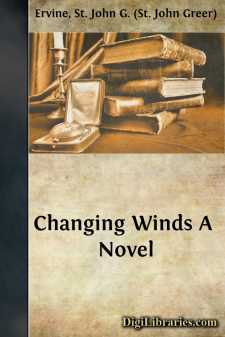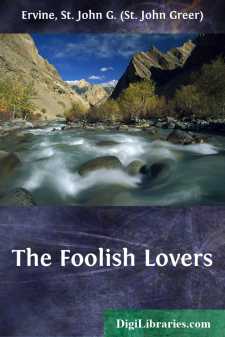Categories
- Antiques & Collectibles 13
- Architecture 36
- Art 48
- Bibles 22
- Biography & Autobiography 816
- Body, Mind & Spirit 145
- Business & Economics 28
- Children's Books 17
- Children's Fiction 14
- Computers 4
- Cooking 94
- Crafts & Hobbies 4
- Drama 346
- Education 58
- Family & Relationships 59
- Fiction 11834
- Foreign Language Study 3
- Games 19
- Gardening 17
- Health & Fitness 34
- History 1378
- House & Home 1
- Humor 147
- Juvenile Fiction 1873
- Juvenile Nonfiction 202
- Language Arts & Disciplines 89
- Law 16
- Literary Collections 686
- Literary Criticism 179
- Mathematics 13
- Medical 41
- Music 40
- Nature 179
- Non-Classifiable 1768
- Performing Arts 7
- Periodicals 1453
- Philosophy 66
- Photography 2
- Poetry 897
- Political Science 203
- Psychology 45
- Reference 154
- Religion 516
- Science 126
- Self-Help 85
- Social Science 82
- Sports & Recreation 34
- Study Aids 3
- Technology & Engineering 59
- Transportation 23
- Travel 463
- True Crime 29
Our website is made possible by displaying online advertisements to our visitors.
Please consider supporting us by disabling your ad blocker.
Changing Winds A Novel
Description:
Excerpt
It would be absurd to say of Mr. Quinn that he was an ill-tempered man, but it would also be absurd to say that he was of a mild disposition. William Henry Matier, a talker by profession and a gardener in his leisure moments, summarised Mr. Quinn's character thus: "He'd ate the head off you, thon lad would, an' beg your pardon the minute after!" That, on the whole, was a just and adequate description of Mr. Quinn, and certainly no one had better qualifications for forming an estimate of his employer's character than William Henry Matier; for he had spent many years of his life in Mr. Quinn's service and had, on an average, been discharged from it about ten times per annum.
Mr. Quinn, the younger son of a poor landowner in the north of Ireland, had practised at the Bar without success. His failure to maintain himself at the law was not due to ignorance of the statutes of the land or to any inability on his part to distort their meaning: it was due solely to the fact that he was a Unionist and a gentleman. His Unionism, in a land where politics take the place of religion, prevented him from receiving briefs from Nationalists, and his gentlemanliness made it impossible for him to accept briefs from the Unionists; for if an Irish lawyer be a Unionist, he must play the lickspittle and tomtoady to the lords and ladies of the Ascendency and be ready at all times and on all occasions to deride Ireland and befoul his countrymen in the presence of the English people.
"I'd rather eat dirt," Mr. Quinn used to say, "than earn my livin' that way!"
He contrived, however, to win prosperity by his marriage to Miss Catherine Clotworthy, the only daughter of a Belfast mill-owner: a lady of watery spirit who irked her husband terribly because she affected an English manner and an English accent. He was very proud of his Irish blood and he took great pride in using Ulster turns of speech. Mrs. Quinn, whose education had been "finished" at Brighton, frequently urged him to abandon his "broad" way of talking, but the principal effect she had on him was to intensify the broadness of his accent.
"I do wish you wouldn't say Aye," she would plead, "when you mean Yes!"
And then he would roar at her. "What! Bleat like a damned Englishman! Where's your wit, woman?"
Soon after the birth of her son, she died, and her concern, therefore, with this story is slight. It is sufficient to say of her that she inherited a substantial fortune from her father and that she passed it on, almost unimpaired, to her husband, thus enabling him to live in comfortable disregard of the law as a means of livelihood. He had a small estate in County Antrim, which included part of the village of Ballymartin, and there he passed his days in agricultural pursuits.
2
Mr. Quinn, as has been stated, was a Unionist, and, in spite of his Catholic name, a Protestant; but he had a poor opinion of his Unionist neighbours who, so he said, were far more loyal to England than England quite liked. He hated the English accent ... "finicky bleatin'," he called it ... and declared, though he really knew better, that all Englishmen spoke with a Cockney intonation. "A lot of h-droppers," he called them, adding, "God gave them a decent language, but they haven't the gumption to talk it!" The Oxford voice, in his opinion, was educated Cockney, uglier, if possible, than the uneducated brand.
An Englishman, hearing Mr. Quinn talk in this fashion, might pardonably have imagined that he was listening to a fanatical Nationalist, a dynamiting Fenian, but if, being a Liberal, he had ventured to advocate Home Rule for Ireland in Mr. Quinn's presence, he would speedily have found that he was in error....



